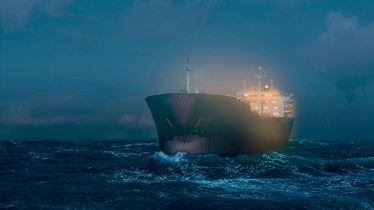Sanctions lists, regulations and laws
The Russian invasion of Ukraine, the ongoing conflict in Syria, and other flashpoints combined with byzantine ownership and registration structures present a legal minefield for professionals in risk and compliance.
As of September 2022, a total of 500 vessels were on the consolidated sanction lists – comprised of UN, OFAC, EU, and HM Treasury lists – 100 of which are Russian-flagged vessels
However, live vessels sailing under flag states located in countries subject to sanctions and/or vessel bans total around 5,600 for Russia, while Iran, Syria, North Korea, and Cuba add roughly 1,300.
This total doesn’t consider vessels sailing under flags of other states, but where the ultimate owners might be subject to sanction restrictions.
A very real threat
As an example, trade continues from Ust Luga, Russia, to global markets, including the Middle East and Asia, as of September 2022, despite the sanctions put in place following the crisis in Ukraine.
It’s crucial for compliance professionals to understand how sanctions regulations apply to individual vessels, ports and routes, the cargo they have loaded or discharged, and their status and ownership.
Understanding the consequences
The ramifications of noncompliance have the potential to be catastrophic – the US Department of the Treasury’s Office of Foreign Assets Control (OFAC) considers non-compliance with sanctions a serious threat to both national security and foreign relations.
Accidental or uninformed breaches will not be accepted as an excuse. By breaching sanctions, you risk being locked out of the US financial system, being added to OFAC’s prohibited list, civil enforcement, criminal penalties, fines, to say nothing of reputation loss.
In 2019 alone OFAC levied $1.3billion in penalties and settlements across 30 public enforcement actions.
Avoiding sanctions risks
In this volatile geopolitical environment, the changing regulations require compliance professionals to be up-to-date with new government regulations and sanctions.
Potential breaches in sanctions regulations are not always transparent.
Finding links to recent and historical ownership and operating entities, places, and port calls for thorough compliance checks requires reliable data and in-depth, tailored analytics.
You must show that you are investigating:
Seasearcher - data at your fingerprints
It takes time for compliance professionals to screen a vessel due to the complexity of the data involved spanning vessel movements, multiple layers of ownership information, and changes in vessel name or flag over time.
This is why we offer trusted and reliable data all in one place. Seasearcher provides a 360 view on vessels and owners by correlating several data sets together to create a narrative which explains each vessel’s background.
Seasearcher Advanced Risk & Compliance is a one-stop source offering previously unattainable insight, enabling you to save time and effort completing sanctions compliance checks, investigations, and monitoring vessels for illicit activity.

